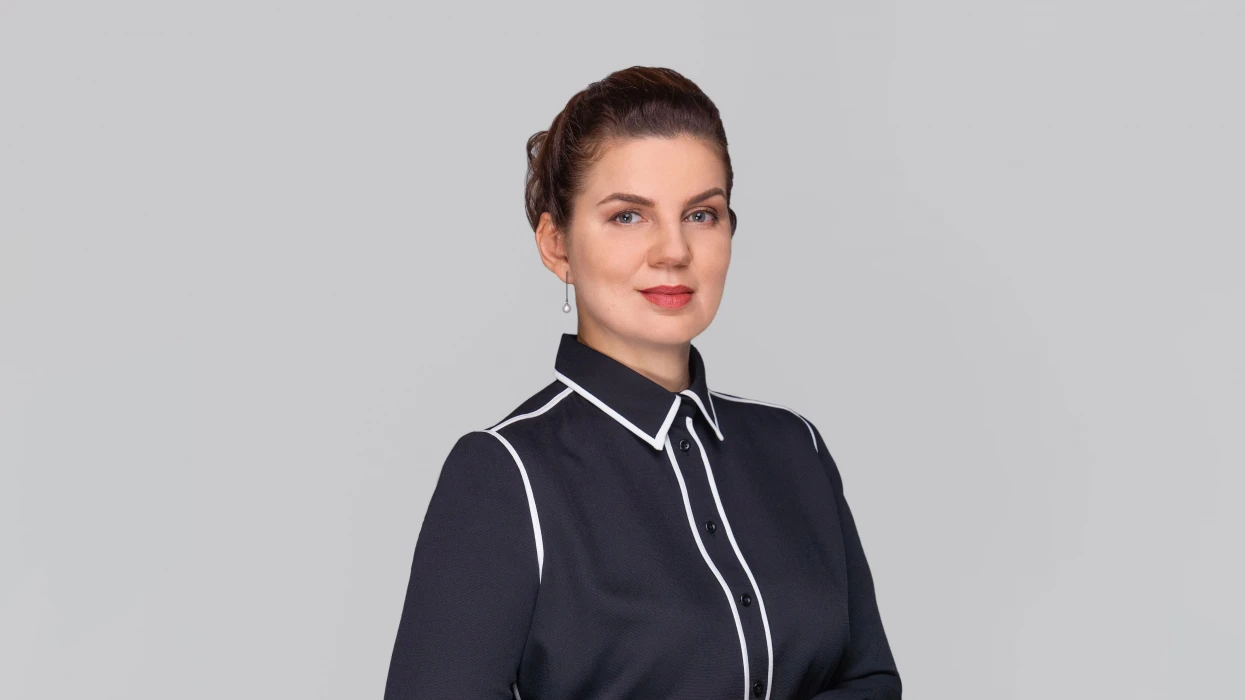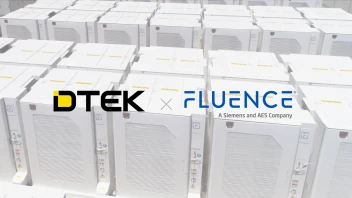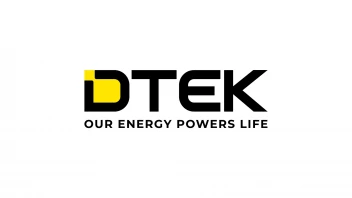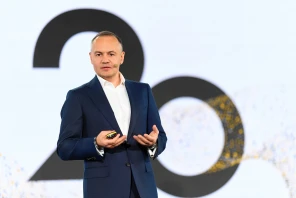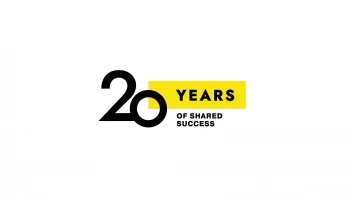Olena Semych, DTEK’s Chief Officer of Human Resources, Social Development and Environment gave an interview to the TOP-100 publication to tell a story of how DTEK is responding to the challenges of our days
How did your company respond to the recent challenges? What lessons did you learn from the events that occurred recently?
Labour market has always been dynamic and was permanently changing, even before the pandemic hit — it just sped up and intensified these processes. Here at DTEK we have a perception of all the trends, because our team counts almost 60 thousand employees and is working throughout Ukraine and abroad, which includes hundreds of various professions.
As far as the trends are concerned, I would like to point out digitalization of all the processes inside the company and its acceleration, strong demand for change management skills, employee welfare management, equality and inclusion, as well as the increasing part played by the professional analytics.
DTEK is special, because we strive to become part of the European energy market, and not only is this a challenge for our businesses, but also a number of excellent opportunities for our staff. Our company allows the people to develop and study and they become highly competitive on the global market.
I would like to especially stress that it is important to think about the people and to support them in the times of crisis. This is one of the most important lessons that the business has to learn once the pandemic is over. For instance, we responded fast when there was a threat of COVID-19 incidence surge in the cities and towns where our thermal power plants operate, because normally this would be a sole large enterprise in the entire locality. Our employees worked in shifts 2 to 3 weeks long each, staying in a "capsule" and not leaving the territory of their thermal power plant. This was also how our other industrial enterprises operated — for instance, gas production facilities, wind and solar power plants. During this period, we made arrangements for our employees to spend their free time without thinking about job duties (i.e., training, various contests, sport exercises, etc.), which according to the feedback pulled them together and assured enormous spiritual support.
What is the corporate structure like at the company and what role does an HR manager play in shaping it up?
Like many other companies, we had to immediately respond to COVID-19 pandemic — DTEK started to refashion in a fast and efficient manner. We set the main goal — to protect health of our employees and their families and to care for their welfare.
In order to select the best solutions, we initiated a survey among our employees. By analyzing answers of our colleagues, we were able to assess the efficiency of different approaches towards working process, as well as to understand what our employees missed the most — spiritual support and awareness promotion. This was how we made the most of our transition to flexible work schedule, ensure flexibility and at the same time to cope with the entirety of business objectives.
We initiated online meetings with psychologists on a daily basis and came up with a solid piece of advice on how to reduce the amount of stress. Our company paid special attention to help the sick employees with whatever necessary. We took every opportunity to get them treated carefully and our in-house doctors sometimes made an even greater contribution to this than the insurance companies or hospitals.
I consider this to be our achievement that despite the overall depressive information background we managed to create the positively-minded and highly productive workspace with clear and straightforward communications. Every employee understood the engagement with the team and this allowed to secure good condition of Ukraine’s energy sector in the times of pandemic and continues the transformation of the entire industry.
What is the value offer of your company? Did it undergo any changes recently?
DTEK has always offered both its employees and candidates the best professional development among the market peers. And this is not just about the training, but also about the ambitious challenges and large-scale projects of our company that promote the professional advancement. The company remains to be a stable and reliable employer that enables our employees to materialize their full potential and to grow alongside with it. DTEK’s values are within its DNA: professionalism, openness, cohesion, client centricity, responsibility and the desire to constantly improve.
Our motivation system is based on financial incentives — salaries, extra payments and various bonuses. This remains untouched. But we took a different approach as far as financial incentives are concerned. DTEK has implemented the Cafeteria project that entitles our employees to many benefits. To briefly describe this project, it entitles an employee who got a specific amount of credits to take advantage of the benefits that such an employee or his or her family need — for instance, fitness club membership, health resort voucher, lunch discount, cell phone topping up, etc. Certain professional or industrial achievements of our employees are rewarded with extra credits to take advantage of many more benefits. We have also updated our annual staff performance assessment program and our company’s talent pool management program. We have streamlined our vocational trainings into digital format, so that all employees could get involved into them.
Is you company already prepared to on-board the young professionals that belong to Generation Z? Shall there be any shift in your approaches?
Ye, there shall be increasingly more Zoomers among our employees within four years, but they shall hardly be the majority. Our company is perfectly balanced in terms of employee age. But the true changes shall come around when Zoomers shall become the executives, who would be meeting the candidates. We need to prepare for a situation when values shall be more important than the money. It is not about certain declarative values, but rather about the things people see, hear and go through once they become part of the company. If previously we would want an effective employee "to do more tasks in less time", not we would want them "to create more value in less time". This means that the professional skill must go alongside with flexibility, ability to learn and be involved into change management.
They say that in the times of the global financial crisis earlier in 2009, the corporate sector was saved by Chief Financial Officers, whereas in the times of the corona-crisis those were HR Directors who delivered the business from major troubles. Do you agree with this assumption?
As the pandemic hit, everyone was initially looking at HRDs and waiting for the ideas how to sort all this mess out. DTEK was acting very fast. We set up COVID-19 Response Office that brought together the representatives of all functions and DTEK’s executives. It was the Response Office that adopted the key resolutions pertinent to the company’s operations during the pandemic.
HR function then had fairly a lot of work to do, and this is the case presently, but our top priority is to uphold both physical and spiritual health of our employees. One of our initiatives were morning exercises on Skype for our office employees who worked remotely. One of our employees was the mastermind of this initiative, while we just helped out with corporate mailing. DTEK promoted such initiatives as much as possible, because most of the employees who were exposed to a shift in their labour routines and who missed their social activities, liked them a lot.
What new competences shall an HR manager possess soon?
The abilities to transform the business and to sustain change and innovations management rank among of the most demanded skills in all spheres. According to the deliverables of research, as many as 63% executives of the leading global companies expect more changes to occur in the business during the next three years to come than during the previous half of a century. And in such conditions, the ability to adapt to the volatile new reality shall be the paramount success factor.
We may also see the trend of growing demand for cognitive skills that have already become generic competences of the XXI century — creativity, systemic thinking, communications, cooperation and executive skills. Another valuable thing is the ability to learn to unlearn, because it is better not to have any information than to have it outdated or irrelevant.
What HR projects did you and your team initiate within the company? What impact did their implementation have on the corporate management and business indicators of DTEK?
Digitalization was among the high-priority HR projects. Over the course of our operations, we have been using deliverables of the most complex analytical models that are aimed primarily at retaining our employees, since 2018. During the previous two years, DTEK has been actively digitalizing the entirety of its processes and is creating its own software to boost our employees’ performance. We have also considerably increased the share of predictive executive analytics. For instance, we launched ProHR software that helped elaborate more effective measures aimed at retaining the employees.
What trends are about to become determinative and how shall they impact the labour market? What HR projects does the company plan to implement?
Today the executive need flexible and highly adjustable employees. However, change management shall be the key skill till as late as 2025. These trends require that our businesses train their employees, improve their qualification on a regular basis and, not least importantly, update their skills. DTEK supports trainings of the employees and our corporate university of Academy DTEK has been an example for other businesses for 10 years already. Our primary task is to provide our employees with an opportunity to learn fast and to develop the competences of the XXI that I have already mentioned. This way or that, these competences are endorsed by all our programs: D.Client School, ID School, Executive education: Energy of Innovation, Force of Communications, DX School, Pre-MBA: Efficient Executive and Change Energy Program.



